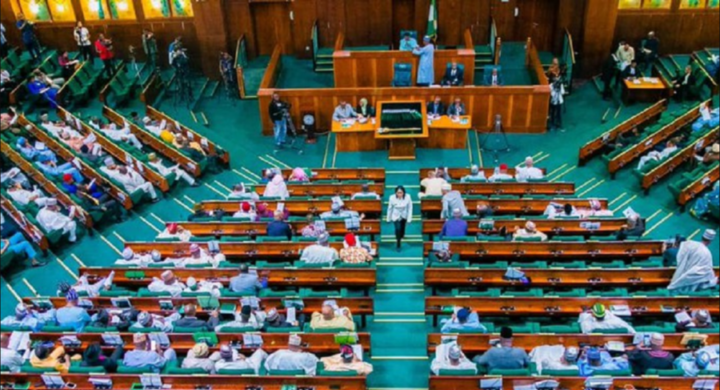The House of Representatives has commenced a comprehensive probe into what it described as excessive and unregulated tax deductions, illegal bank charges, and multiple levies imposed on customers by commercial banks across Nigeria. This move follows growing complaints from individuals, small businesses, and corporate bodies over what they consider exploitative financial practices by banks.
Lawmakers expressed concern that despite the Central Bank of Nigeria’s (CBN) guidelines on permissible bank charges, many financial institutions continue to impose multiple, unexplained deductions on customers’ accounts. These deductions, they said, often occur under the guise of Value Added Tax (VAT), stamp duties, electronic money transfer levies, and other service-related charges.

The probe, initiated by a motion sponsored by Hon. Mohammed Bello from Kano State, was adopted at the plenary session following overwhelming bipartisan support. Bello argued that the growing incidence of arbitrary charges is inflicting hardship on citizens and undermining public confidence in the banking system.
According to him, “Nigerians are daily subjected to unexplained bank deductions ranging from maintenance fees to transfer levies and multiple taxes that have no legal backing. This practice amounts to economic exploitation and must be investigated to protect the integrity of the financial sector.”
The House Committee on Banking and Currency, in collaboration with the Committee on Finance, has been mandated to summon key stakeholders, including the CBN, the Federal Inland Revenue Service (FIRS), the Nigeria Inter-Bank Settlement System (NIBSS), and commercial bank executives, to explain the rationale behind these deductions and clarify whether they align with approved regulations.
Lawmakers noted that despite the recent reforms introduced by the CBN and the FIRS to streamline tax administration and improve financial transparency, customers continue to face multiple charges that are neither properly disclosed nor consented to. They lamented that such deductions often go unnoticed by less literate account holders and small-scale business owners who lack access to proper banking education.
During the debate, Hon. Oluwole Oke, Chairman of the House Committee on Public Accounts, said the probe would help uncover the cumulative impact of these charges on the economy and ordinary Nigerians. “This is not only about customer protection but also about transparency and accountability in our banking and taxation system. If left unchecked, these unregulated deductions could erode public trust and discourage savings,” Oke warned.
The lawmakers also expressed concern about inconsistencies in how taxes and levies are applied by banks, noting that some deductions are duplicated across different transactions. They alleged that in some cases, banks fail to remit collected taxes promptly to the appropriate government agencies, leading to discrepancies in national revenue figures.
A member of the committee familiar with the investigation revealed that the House would request detailed records of all deductions made by banks over the past five years, including documentation on tax remittances to the FIRS and CBN-approved fee schedules. “This probe will not be a mere academic exercise. We intend to trace every naira deducted and ensure accountability,” the member said.
Meanwhile, consumer protection groups have welcomed the House’s intervention, describing it as long overdue. The President of the Association of Nigerian Account Holders (ANAH), Mr. Kunle Adeyemi, said: “For too long, Nigerians have suffered from arbitrary deductions by banks without clear explanations. We hope this investigation will bring transparency and possibly refund unjust charges to customers.”
He further stressed that some deductions violate the Guide to Charges by Banks and Other Financial Institutions in Nigeria, issued by the CBN, which outlines permissible charges for various banking services. “Many of these banks impose fees beyond what is approved, and the regulators appear slow in sanctioning them,” Adeyemi added.
In response to the development, some commercial banks have maintained that their charges comply strictly with CBN regulations and that most deductions are government-mandated taxes, such as stamp duties and electronic transfer levies. A top executive from one of the Tier-1 banks, who requested anonymity, said: “We only apply charges that are legally recognised. The problem sometimes is that customers are not fully aware of the breakdown of their fees.”
However, analysts argue that even legitimate charges require better transparency and clearer communication. According to financial analyst Dr. Ifeanyi Onah, “The issue is not always about legality but about clarity. Banks should ensure that customers fully understand every deduction made on their accounts. The CBN must also strengthen enforcement to ensure full compliance.”
The House also directed its committees to engage the CBN on its role in monitoring compliance with the Guide to Bank Charges and to determine whether regulatory lapses have contributed to customer exploitation. Lawmakers hinted that the outcome of the investigation could lead to recommendations for sanctions, refunds, or a complete overhaul of the fee structure in Nigeria’s banking industry.
As part of its resolution, the House mandated the committees to report back within four weeks with findings and recommendations. The Speaker, Hon. Tajudeen Abbas, emphasized that the legislature remains committed to protecting citizens from financial exploitation. “We owe Nigerians accountability. Every kobo deducted from the public must be justifiable and within the law,” he declared.
The probe represents one of several recent efforts by the National Assembly to strengthen oversight in Nigeria’s financial system. In recent months, the House has launched investigations into forex allocation practices, revenue remittances by Ministries, Departments and Agencies (MDAs), and alleged irregularities in the collection of stamp duties by banks.
As the investigation unfolds, Nigerians are watching closely, hoping the outcome will bring long-awaited relief and restore confidence in the nation’s financial institutions. For many, the expectation is simple — that every deduction from their accounts will finally be transparent, legal, and fair.
Support InfoStride News' Credible Journalism: Only credible journalism can guarantee a fair, accountable and transparent society, including democracy and government. It involves a lot of efforts and money. We need your support. Click here to Donate
